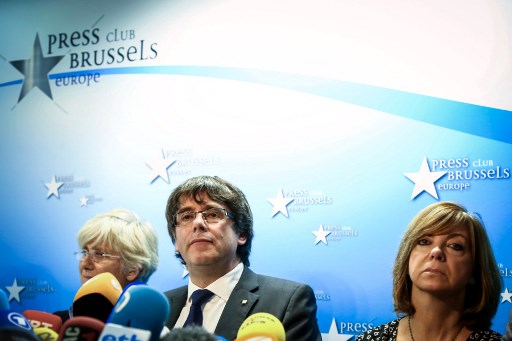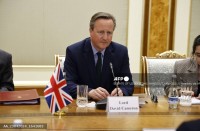
Speaking to Dutch public newscaster NOS late Tuesday, Belgian lawyer Paul Bekaert said “as far as he told me, that’s not going to happen” when asked if his client would go back to Spain.
“That’s because we are awaiting further reactions from the Spanish authorities to see what’s going to happen,” Bekaert said, speaking by phone to the Nieuwsuur actuality program.
Puigdemont, together with 13 other former members of his administration dismissed by the Spanish central government last week, has been summoned by the National Audience in Madrid.
The body deals with major criminal cases.
On Monday, Spain’s chief prosecutor said he was seeking charges of rebellion — punishable by up to 30 years behind bars — sedition and misuse of public funds.
But the 54-year-old Puigdemont is in Brussels, where he surfaced after reportedly driving to Marseille in France and taking a plane to the Belgian capital.
Bekaert said he believed “there is a good chance that Puigdemont will be detained” should he return to Spain.
He added that an extradition request from Madrid “is not essential.”
“I have handled a large number of cases involving Spanish Basques and in those cases an interrogation simply took place here (in Belgium) with the local police,” the lawyer said.
Asked whether Puigdemont would face a fair trial in Spain, Bekaert said “it would be premature (to say), but that would certainly be an argument we would use at an eventual extradition request.”
At a packed and chaotic news conference Tuesday, Puigdemont said he was in Brussels “for safety purposes and freedom” and to “explain the Catalan problem in the institutional heart of Europe.”
He denied that he intended to claim asylum but said he and several other former ministers who traveled with him would return only if they have guarantees that legal proceedings would be impartial.
© Agence France-Presse







